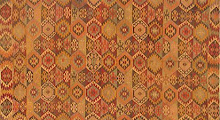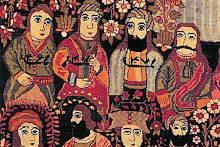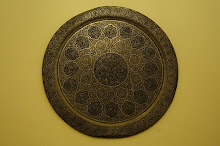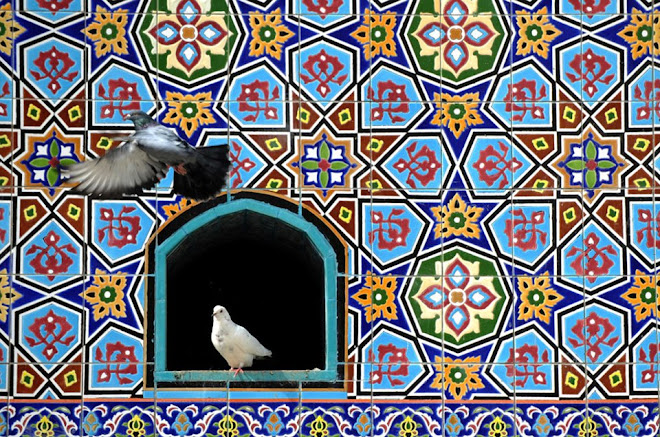Western civilization will often point to the intellectual advances of the ancient Greeks and Romans as the cornerstone of its own scientific achievements. But what remains under-acknowledged, if often unknown, is the pivotal role played by Islamic civilization in collating, developing and transmitting ancient learning to the West.
Over a thousand years ago, the Abbasid Caliphate in Baghdad undertook one of the greatest initiatives to consolidate knowledge ever known. Those efforts focused around “Bayt al-Hikma” or the “House of Wisdom” - a centre for research, translation, and astronomical observation founded by the iconic Caliph Haroun al-Rashid in the 8th century A.D. His son and heir, the Caliph al-Ma’amun put the House of Wisdom’s operations into even higher gear. He gathered scholars from across the empire and charged them with the task of collecting every observation and shred of insight belonging all cultures within Baghdad’s reach.
It was an undertaking made possible by a fortuitous confluence of developments. By the middle of the 7th century, conquering Muslim armies had fanned out from Arabia to some of the furthest corners of the known world – including India, Afghanistan, China, North Africa and Spain. The scientific and cultural knowledge of a patchwork of ethnic and religious communities were suddenly brought under one political umbrella. Jewish, Byzantine, Persian, Indian, and Egyptian traditions became simultaneously accessible, and started cross-fertilizing.
The availability of new paper technology from China made for the fast and efficient creation of books (in Europe, documents were still being written on parchment). It was only a matter of time before libraries came into being and knowledge began to spread.
This represented a golden opportunity for the forward-thinking minds of the Islamic empire. When Baghdad, the capital of the Abbasid Caliphate, was constructed in 765, the decision was made to turn its domains into a scientific superpower. The House of Wisdom was duly born.
Following the example of the Library of Alexandria several centuries prior, the House of Wisdom placed an emphasis on collecting – and translating into Arabic – as many old manuscripts as it could get its hands on. A gargantuan effort comprising an army of scholars churned out new Arabic translations from old Hindu, Persian, Greek, Syriac and Roman works.
The agents of this operation went to extraordinary lengths to get their hands on any text that would add to the empire’s storehouse of knowledge. One account has it that a copy of Ptolemy’s astronomical masterpiece, Almagest, was one of the conditions of peace dictated by the Arabs to the Byzantines.
By the middle of the 11th century, the Arabs translated all major Greek works available in the areas of science and philosophy – as well as a great many others.
The impact of this translation effort was manifold. First, the availability in Arabic of certain works - some of which had been “forgotten” or “lost” - allowed original Arab thinkers to make quantum leaps within their respective fields. Disciplines such as mathematics, astronomy, medicine, physics, chemistry, philosophy and psychology were advanced by scholars who had access to an unprecedented pool of information.
Methodologies also evolved. The first universities emerged. Personal observation and experience became the hallmarks of medieval Arab science. And Arabic replaced Greek as the language of scientific inquiry.
This consolidated learning also provided the bedrock on which the most enlightened of all savants developed what was then known as the “Science of Man” – the knowledge and methods, passed along from teacher to pupil, on how to refine human consciousness and to connect up with ever-higher relationship patterns all the way up to experience of the Absolute.
This entire storehouse of knowledge was deliberately transferred cross-culturally - westwards and north into Andalusia and Europe, paving the way for the Renaissance and those developments beyond.
The passing of the civilizational baton came just in time. The House of Wisdom’s perfect storm of knowledge drew to an abrupt close when its libraries were destroyed by the Mongol armies who sacked Baghdad in 1258. It is said that for months the waters of the Tigris River were darkened by ink from all the library books that were thrown into the river.
Over a thousand years ago, the Abbasid Caliphate in Baghdad undertook one of the greatest initiatives to consolidate knowledge ever known. Those efforts focused around “Bayt al-Hikma” or the “House of Wisdom” - a centre for research, translation, and astronomical observation founded by the iconic Caliph Haroun al-Rashid in the 8th century A.D. His son and heir, the Caliph al-Ma’amun put the House of Wisdom’s operations into even higher gear. He gathered scholars from across the empire and charged them with the task of collecting every observation and shred of insight belonging all cultures within Baghdad’s reach.
It was an undertaking made possible by a fortuitous confluence of developments. By the middle of the 7th century, conquering Muslim armies had fanned out from Arabia to some of the furthest corners of the known world – including India, Afghanistan, China, North Africa and Spain. The scientific and cultural knowledge of a patchwork of ethnic and religious communities were suddenly brought under one political umbrella. Jewish, Byzantine, Persian, Indian, and Egyptian traditions became simultaneously accessible, and started cross-fertilizing.
The availability of new paper technology from China made for the fast and efficient creation of books (in Europe, documents were still being written on parchment). It was only a matter of time before libraries came into being and knowledge began to spread.
This represented a golden opportunity for the forward-thinking minds of the Islamic empire. When Baghdad, the capital of the Abbasid Caliphate, was constructed in 765, the decision was made to turn its domains into a scientific superpower. The House of Wisdom was duly born.
Following the example of the Library of Alexandria several centuries prior, the House of Wisdom placed an emphasis on collecting – and translating into Arabic – as many old manuscripts as it could get its hands on. A gargantuan effort comprising an army of scholars churned out new Arabic translations from old Hindu, Persian, Greek, Syriac and Roman works.
The agents of this operation went to extraordinary lengths to get their hands on any text that would add to the empire’s storehouse of knowledge. One account has it that a copy of Ptolemy’s astronomical masterpiece, Almagest, was one of the conditions of peace dictated by the Arabs to the Byzantines.
By the middle of the 11th century, the Arabs translated all major Greek works available in the areas of science and philosophy – as well as a great many others.
The impact of this translation effort was manifold. First, the availability in Arabic of certain works - some of which had been “forgotten” or “lost” - allowed original Arab thinkers to make quantum leaps within their respective fields. Disciplines such as mathematics, astronomy, medicine, physics, chemistry, philosophy and psychology were advanced by scholars who had access to an unprecedented pool of information.
Methodologies also evolved. The first universities emerged. Personal observation and experience became the hallmarks of medieval Arab science. And Arabic replaced Greek as the language of scientific inquiry.
This consolidated learning also provided the bedrock on which the most enlightened of all savants developed what was then known as the “Science of Man” – the knowledge and methods, passed along from teacher to pupil, on how to refine human consciousness and to connect up with ever-higher relationship patterns all the way up to experience of the Absolute.
This entire storehouse of knowledge was deliberately transferred cross-culturally - westwards and north into Andalusia and Europe, paving the way for the Renaissance and those developments beyond.
The passing of the civilizational baton came just in time. The House of Wisdom’s perfect storm of knowledge drew to an abrupt close when its libraries were destroyed by the Mongol armies who sacked Baghdad in 1258. It is said that for months the waters of the Tigris River were darkened by ink from all the library books that were thrown into the river.















